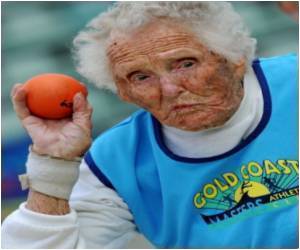A study led by researchers at Albert Einstein College of Medicine of Yeshiva University has found the effectiveness of brain fitness programs in helping the weak elderly walk faster.

Ten of the seniors (the intervention group) participated in the Mindfit brain fitness program three times weekly for eight weeks, with each training session lasting from 45 to 60 minutes.
During the sessions, they carried out tasks aimed at sharpening cognitive abilities such as focusing, planning, organizing and problem solving. The other 10 seniors constituted the control group.
Compared with their speeds at the start of the study, the 10 seniors in the intervention group improved their normal-walking velocity, although the gain was not statistically significant.
For walking while talking - which requires considerably more concentration than normal walking - the seniors who took computer training notably improved compared with their initial speeds. By contrast, no improvement in walking speed was observed for the control group.
"This was a small study - we're now preparing to do a larger clinical trial - but the results suggest that brain fitness programs show promise for helping the frail elderly walk better," said lead author Joe Verghese, professor in the Saul R. Korey Department of Neurology and the Murray D. Gross Memorial Faculty Scholar in Gerontology at Einstein.
Advertisement
Results appear in the July 19 online edition of the Journal of Gerontology.
Advertisement














